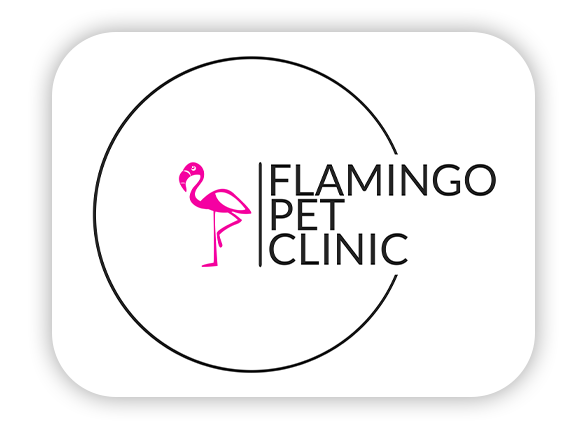Dental problems are very common in our canine companions. In fact, as many as 80 percent of pups over the age of three are afflicted. These issues are both painful and problematic for Fido, just as they are for us. They can cause infections and difficulty eating, and can also contribute to more serious medical issues, such as heart disease. Whether you have a long-time family pet or are considering adopting a shelter dog, proper dental care is crucial. A Las Vegas, NV veterinarian discusses doggy dental care below.
Brushing
Brushing Fido’s teeth is the best way to keep them clean. You’ll need to get your canine friend on board with the process, which may take time. Start by gently rubbing his teeth and gums as you are petting him. Immediately praise him and give him a snack. Once he’s used to the idea, you can incorporate pet toothpaste and a doggy toothbrush. Ask your vet for more information.
Chews
Chewing is Fido’s natural doggy dental care regime: it keeps his jaws strong, helps scrape off plaque, and stimulates saliva flow. Ask your vet to recommend suitable chews.
Exams
Fido should have his teeth checked at least once a year. This should start around the time your furry friend is about a year old, as by then all his adult teeth should have come in. (Fun fact: most dogs have 42 adult teeth; 20 on top, and 22 on the bottom.) Regular dental check-ups and professional cleanings are an essential part of your dog’s overall health. Our veterinary dentistry services can help keep your dog’s teeth in top condition.
Dental Products
If Fido isn’t cooperating with getting his teeth brushed, you may need to look into other options. There are quite a few products that can help promote good oral health, such as dental-formula treats, oral rinses, and flakes. (Tip: try putting doggy toothpaste on a Nylabone.) Ask your vet for specific recommendations.
Awareness
It’s important to know the warning signs to look for. These include bad breath, swelling, visible tartar buildup, heavy or bloody drool, and bleeding gums. You’ll also want to keep an eye out for behavioral changes. Fido may seem sad or sullen, and he may not be very interested in toys or playtime. Changes in eating habits are also a red flag. Your canine pal may dribble food, chew on one side of his mouth, or just take longer eating. He may also start preferring soft foods. Call us immediately if you notice any of these things.
Our Advice on Caring For Your Dog’s Teeth in 2025
What specific types of dental problems are most common in dogs, and what are their primary causes?
The most common dental problems in dogs include periodontal disease, tartar buildup, gingivitis, and tooth decay. Periodontal disease, affecting the structures around the teeth, is particularly prevalent and can lead to tooth loss if untreated. Primary causes of these dental issues include inadequate oral hygiene, a diet lacking in chewable foods that help scrape off plaque, and genetic predisposition in certain breeds. Regular brushing and professional cleanings are crucial to manage these problems, as they remove plaque before it hardens into tartar and causes more severe gum disease.
How often should a dog’s teeth be professionally cleaned by a veterinarian?
A dog’s teeth should be professionally cleaned by a veterinarian at least once a year. This frequency can vary depending on the dog’s breed, age, and overall dental health. Some breeds prone to dental issues or dogs with a history of dental problems may require more frequent cleanings. Regular veterinary exams will help determine the appropriate schedule for each individual dog. Early and regular cleanings are crucial to prevent the development of periodontal disease and other oral health issues.
Are there any specific breeds that are more prone to dental issues than others?
Yes, certain dog breeds are more prone to dental issues than others. Smaller breeds, such as Toy Poodles, Dachshunds, and Yorkshire Terriers, often face a higher risk of periodontal disease due to their smaller mouths and teeth being closer together, which facilitates quicker plaque buildup. Additionally, breeds with brachycephalic (flat-faced) characteristics, like Bulldogs and Boxers, are also at increased risk because their misaligned teeth can lead to more rapid accumulation of dental problems. These breeds may require more frequent dental care and monitoring.
How can dog owners tell the difference between normal dog breath and bad breath that may indicate a dental problem?
Dog owners can distinguish normal dog breath from bad breath that may indicate a dental problem by its intensity and persistence. Normal dog breath isn’t particularly fragrant but shouldn’t be overwhelmingly unpleasant. Bad breath that signals dental issues often has a noticeably foul, persistent odor, sometimes described as smelling like rotten eggs or sewage, due to the bacteria in infected gum tissue and dental decay. If the bad breath is accompanied by other signs such as drooling, difficulty eating, or red, swollen gums, it likely indicates a dental problem requiring veterinary attention.
Are there any specific types of food or diets that can help promote good dental health in dogs?
A balanced diet consisting of high-quality commercial dog food or veterinarian-approved homemade meals can promote good dental health in dogs. Additionally, certain dental-specific diets and treats are formulated to reduce tartar and plaque buildup. Hard, crunchy foods or dental chews can also help mechanically clean teeth while chewing. However, it’s essential to consult with a veterinarian before making any dietary changes to ensure they meet your dog’s nutritional needs and contribute to overall dental health. Regular dental checkups and professional cleanings remain crucial aspects of maintaining optimal oral hygiene in dogs.
Do you have questions or concerns about your dog’s health or care? Contact us, your Las Vegas, NV animal hospital, today!
